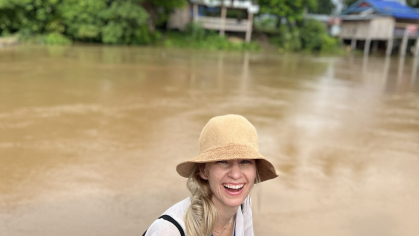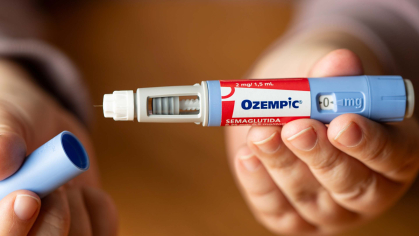
Imagine waking up before sunrise to nature’s chorus, trusting that the river near your home will provide your family with nutritious food and sustain life in the community. Yet, each year, shifting seasonal patterns make the river more unpredictable and its bounty scarcer.
This reality is faced by populations along Cambodia’s Mekong River and Tonlé Sap Lake, who primarily rely on the land and water for their meals. However, climate change has intensified floods and droughts, making acquiring food from nature increasingly unreliable and challenging. While local markets serve as an alternative, the cost of fresh produce puts additional strain on tight budgets, pulling families into a poverty trap that climate change continues to exacerbate. These vulnerable landscapes are where RCEI affiliate and Rutgers School of Public Health associate professor, Shauna Downs, conducts her research. Downs is interested in understanding the barriers communities face in accessing food, as well as the intricate relationship between climate change, diets, and nutrition.




